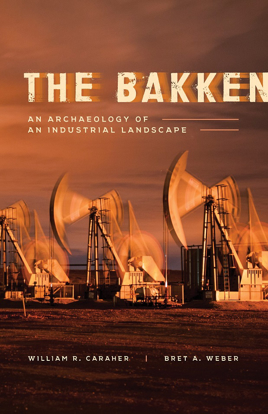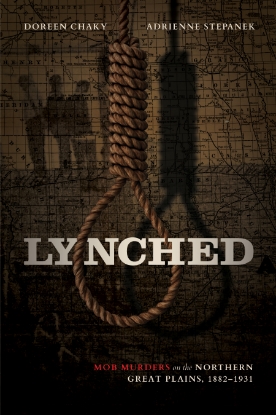Products tagged with 'western north dakota'
Bakken: An Archaeology of an Industrial Landscape
The Bakken oil patch ranks among the great achievements of the contemporary age. The arrival of fracking technology in western North Dakota led to an industrial renaissance that transformed sleepy farm communities into crucial cogs in the global extractive economy. Fracking technology made the area a global destination for roughnecks, petroleum engineers, pipeline “cats,” fishers (who “fish” for tools and other objects accidentally dropped down wells), truck drivers, carpenters, contractors, and electricians as well as journalists, adventure scientists, academic scholars, photographers, and filmmakers. The bustle of heavy industry and a landscape of dramatic contrasts present a magnetic attraction for the adventurous traveler. Pack your camera, your sulfur dioxide sensor, a pair of steel-toed boots, and your flame-resistant Carhartt clothing as you get ready for a unique journey to a frontier landscape forged by industry.
Lynched: Mob Murders on the Northern Great Plains, 1882-1931
With a rope and a mission, like-minded neighbors found lynching to be a simple and efficient way to obtain what they regarded as certain justice.
Northern plains lynch mobs shared a belief that what they did resulted in swift and sure justice, which the established courts would not or could not provide. Juries might be reluctant to impose the death penalty, and if a suspect were tried, found guilty, and sentenced to life in prison, they might be prematurely pardoned. Perpetrators might successfully evade punishment by using insanity pleas. With a rope and a mission, like-minded neighbors found lynching a simple and efficient way to obtain what they regarded as certain justice.
The distrust many citizens had of the legal profession seemed rooted in the perception that lawyers and the complicated law they practiced appeared to offer more justice to criminals than to crime victims. That distrust extended to jurors considered too soft-hearted to mete out appropriate punishment. Do-it-yourself justice among the lynch mobs seemed fairer and quicker than waiting for what they considered unreliable juries, lawyers, and judges. Perhaps those who disparaged lawyers and the rule of law—and sought to bypass them with a rope—simply did not understand the complexities of American jurisprudence. Based on centuries-old English common law, the court system was malleable and did respond to changing ideas and mores, but these changes came slowly. The people who made up the mobs were unwilling to patiently await such incremental adjustments.
Lynched examines the events surrounding, and the media portrayal of, nine mob murders that resulted in eleven deaths on the northern Great Plains from 1882 to 1931. Revealing a disturbing part of history, Lynched aims at uncovering the stories of these lynchings while shedding light on the volatile mentality of the communities where such injustice happened.
ISBN: 978-1-946163-59-2
Page Count: 320
Picture Count: 29 black and white images
Index: Yes
Bibiliography: Yes
Hardcover
Publication Date: April 13, 2024
Lynched, Mug
11-oz. capacity
Dishwasher- & microwave-safe
Ceramic
White exterior
Ships directly from manufacturer


























